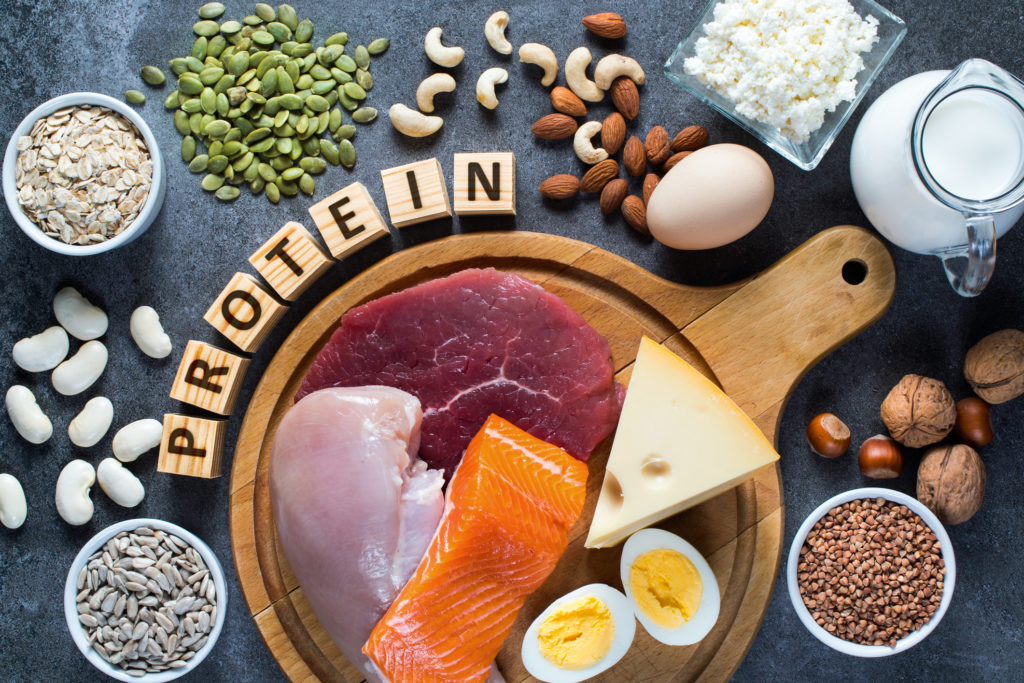Are you doing everything right—eating healthy, exercising regularly—but still can’t seem to shed those stubborn pounds? You’re not alone. Many people face challenges with weight loss despite their best efforts. But what if I told you there’s a way to activate your weight loss hormones, giving your metabolism the boost it needs to burn fat more effectively? Believe it or not, there are simple strategies you can incorporate into your routine that can make a big difference. Keep reading to learn how to unlock the power of your body’s weight loss hormones and finally start seeing results.
What Are Weight Loss Hormones and How Do They Affect Your Body?
Weight loss isn’t just about calories in and calories out. Your body produces special hormones that play a crucial role in regulating your metabolism, appetite, and fat storage. By balancing these hormones, you can give yourself a significant advantage in your weight loss journey.
Leptin: Known as the “satiety hormone,” leptin is produced by your fat cells and signals to your brain when you’re full. Higher leptin levels help you feel satisfied and prevent overeating. Conversely, low leptin levels can cause increased hunger and cravings, making it harder to control your appetite.
Ghrelin: Often referred to as the “hunger hormone,” ghrelin is released by your stomach and intestines when you’re hungry. It stimulates your appetite, signaling to your brain that it’s time to eat. An imbalance of ghrelin can lead to excessive hunger and overeating, which can slow down your weight loss progress.
Cortisol: The “stress hormone,” cortisol is produced when your body is under stress. While it helps you manage stressful situations, elevated cortisol levels can lead to cravings for high-fat, sugary foods and encourage your body to store fat, particularly around the abdominal area. Finding ways to manage stress is key to keeping cortisol levels in check and supporting your weight loss efforts.
How to Turn on Your Weight Loss Hormones Naturally
Now that you know how important these hormones are for weight loss, you might be wondering: How can you activate them? Fortunately, there are simple, natural ways to boost the levels of these hormones and support your weight loss goals. Here are some actionable tips to help you get started:
- Eat Protein-Rich Meals: Eating protein helps regulate both leptin and ghrelin levels, making you feel fuller for longer and curbing cravings.
- Prioritize Sleep: Getting enough sleep each night is essential for maintaining balanced hormones, including leptin and ghrelin. Aim for 7-9 hours per night to support your weight loss efforts.
- Manage Stress: Practicing stress management techniques like meditation, yoga, or deep breathing exercises can lower cortisol levels, preventing stress-induced overeating.
- Incorporate Healthy Fats: Eating healthy fats from sources like avocados, nuts, and olive oil can help regulate leptin levels and keep you feeling satisfied.
By understanding how weight loss hormones impact your body and making simple lifestyle changes, you can activate these hormones and support your weight loss goals more effectively. Ready to start turning on your fat-burning hormones? Incorporate these tips into your daily routine and watch your progress soar!

Eat Plenty of Protein to Activate Weight Loss Hormones
One of the most effective ways to activate your weight loss hormones is by eating a protein-rich diet. Protein not only helps you feel full and satisfied but also plays a crucial role in boosting your metabolism. By consuming adequate protein, you can prevent overeating and minimize the temptation to snack throughout the day, helping you maintain a calorie deficit.
Incorporate high-quality sources of protein into your meals to support weight loss. Great options include lean meats, fish, eggs, dairy products, and plant-based proteins such as beans, lentils, and tofu. Aim to include protein in every meal to enhance satiety and keep your hormones working for you.
Get Enough Sleep to Regulate Your Appetite Hormones
Sleep plays a crucial role in hormone regulation, particularly when it comes to appetite. Lack of sleep can disrupt the balance of hormones like leptin and ghrelin. Leptin, the hormone responsible for signaling when you’re full, can decrease with insufficient sleep, leading to increased hunger and cravings. On the other hand, too much ghrelin, the “hunger hormone,” can cause overeating.
To support your weight loss goals, aim for 7-8 hours of quality sleep every night. Prioritize good sleep hygiene by establishing a regular sleep schedule, creating a relaxing bedtime routine, and keeping your bedroom dark and cool to optimize hormone production.
Drink Plenty of Water to Support Fat Breakdown
Drinking water is a simple yet powerful way to activate your weight loss hormones. Staying hydrated can help boost leptin levels, reducing hunger and promoting feelings of fullness. Additionally, water plays a role in regulating ghrelin, which can help control cravings and reduce overeating.
Water also increases the production of adiponectin, a hormone that promotes fat breakdown and boosts your body’s ability to burn fat. Make sure to drink enough water throughout the day—aim for at least eight 8-ounce glasses—to stay hydrated and keep your weight loss hormones in check.
Exercise Regularly to Boost Fat-Burning Hormones
Exercise is essential for activating weight loss hormones and promoting fat breakdown. Physical activity, particularly cardiovascular exercise, helps increase levels of irisin, a hormone that helps convert stored fat into energy. Regular exercise not only helps burn calories but also supports hormonal balance, making it easier for your body to shed excess weight.
In addition to irisin, exercise can also increase leptin levels, improving appetite regulation and making it easier to stick to a healthy eating plan. To see optimal results, aim for at least 30 minutes of moderate to intense exercise daily. Activities like walking, cycling, swimming, or running are all great options for activating fat-burning hormones and promoting overall weight loss.
By incorporating these four strategies—eating protein-rich meals, getting enough sleep, drinking plenty of water, and exercising regularly—you can naturally activate your weight loss hormones and support your journey toward a healthier, leaner you.

Avoid Processed Foods to Support Your Weight Loss Hormones
Processed foods can hinder your weight loss efforts and interfere with your hormone balance. These foods are often packed with added sugars, unhealthy fats, and excess sodium, which can lead to weight gain and disrupt hormones like leptin, which helps regulate your appetite. When you consume too many processed foods, it can cause your leptin levels to drop, making it more difficult to feel full and increasing the likelihood of overeating.
Instead of reaching for packaged, processed options, focus on eating whole, nutrient-dense foods like fresh fruits, vegetables, lean proteins, and whole grains. These natural foods help keep your weight loss hormones in check, support overall health, and contribute to a more effective metabolism.
Reduce Stress to Balance Cortisol and Enhance Weight Loss
Stress is another major obstacle to weight loss because it leads to increased levels of cortisol, the “stress hormone.” Elevated cortisol levels can not only trigger cravings for unhealthy foods but also encourage your body to store fat, particularly around your abdomen. This can make it much harder to lose weight, even when you’re eating well and exercising regularly.
To keep cortisol levels in check and optimize your weight loss efforts, make stress management a priority. Incorporating stress-reducing practices into your daily routine, such as meditation, yoga, deep breathing exercises, or simply taking regular breaks throughout the day, can have a significant impact on your ability to shed pounds.
Supplement with Omega-3 Fatty Acids for Hormone Health
Omega-3 fatty acids are essential for overall hormone health and can play a key role in activating weight loss hormones. These healthy fats can help improve leptin sensitivity, making it easier for your body to recognize when you’re full and reducing the risk of overeating. Omega-3 fatty acids also support fat metabolism, which is crucial for weight loss.
You can incorporate omega-3s into your diet through foods like fatty fish (salmon, mackerel), walnuts, chia seeds, and flaxseeds. If you’re not getting enough omega-3s through your diet, consider talking to your doctor about supplementing with high-quality omega-3 supplements to support your weight loss goals.
Ensure Sufficient Vitamin D for Effective Weight Loss
Vitamin D is an important nutrient that supports hormone health, and research shows that vitamin D deficiency is often linked to weight gain and obesity. Low levels of vitamin D can disrupt the balance of hormones that regulate fat storage and appetite, making it harder to lose weight.
To ensure you’re getting enough vitamin D, aim to spend some time outdoors in sunlight, as sunlight is the most natural source of vitamin D. If you’re unable to get enough sun exposure, consider supplementing with vitamin D to maintain optimal hormone function and improve your weight loss potential.
By avoiding processed foods, reducing stress, supplementing with omega-3 fatty acids, and ensuring adequate vitamin D intake, you can support your body’s weight loss hormones and create the ideal environment for effective fat burning. These lifestyle changes will help you optimize your weight loss efforts and maintain long-term results.

Avoid Drinking Alcohol to Control Hunger and Cravings
Alcohol can interfere with your weight loss efforts by increasing the production of ghrelin, the hormone responsible for hunger. Elevated ghrelin levels can cause you to feel hungrier and crave sugary or high-calorie foods, making it more difficult to stick to your weight loss goals. While it’s fine to occasionally enjoy a glass of wine or beer, limiting your alcohol intake to just a few times a week can help you maintain better control over your appetite and make it easier to stay on track with your weight loss plan.
Eat Breakfast Every Day to Activate Fat-Burning Hormones
Many people think skipping breakfast helps with weight loss, but this could actually slow down your progress. Eating a healthy breakfast is one of the most effective ways to activate your weight loss hormones. When you eat in the morning, your body releases glucagon, a hormone that helps break down stored fat and regulate blood sugar levels. By eating a balanced breakfast, you can set the stage for a productive day of fat-burning and keep your metabolism running smoothly.
Make sure your breakfast includes a combination of protein, healthy fats, and fiber to fuel your body and keep you feeling full throughout the morning. Opt for nutrient-dense foods like eggs, whole grains, fruits, and vegetables to maximize your weight loss efforts.
Tips for Turning on Your Weight Loss Hormones
In addition to avoiding alcohol and eating a healthy breakfast, there are other ways to support your weight loss hormones and see better results. Consistently practicing healthy habits such as staying hydrated, managing stress, exercising regularly, and getting enough sleep can all help activate your body’s fat-burning hormones, making it easier to lose weight and maintain a healthy weight over time.
Consult with a Health Professional for Personalized Guidance
It’s important to remember that weight loss is a personal journey, and what works for one person may not work for another. Before making any major changes to your diet or lifestyle, it’s always a good idea to consult with a healthcare professional. They can help you create a personalized plan that suits your unique needs and goals, ensuring the best chances of success.
By following these strategies and incorporating healthy habits into your daily routine, you can effectively turn on your weight loss hormones and make meaningful progress toward achieving your goals. Stay consistent, be patient, and remember that every small step counts!

